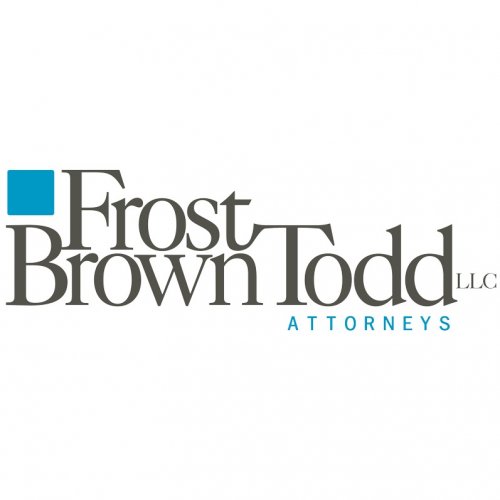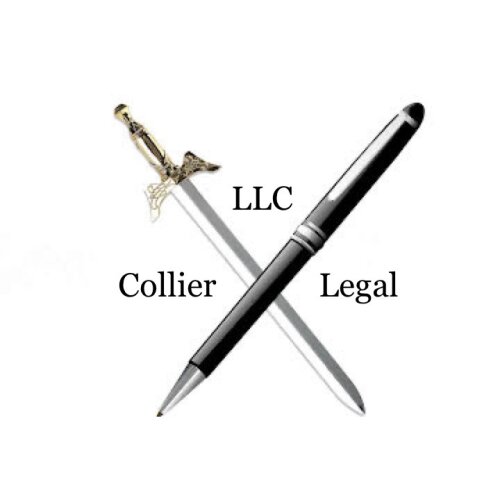Best Art & Cultural Property Law Lawyers in Ohio
Share your needs with us, get contacted by law firms.
Free. Takes 2 min.
Or refine your search by selecting a city:
List of the best lawyers in Ohio, United States
About Art & Cultural Property Law in Ohio, United States
Art & Cultural Property Law is a specialized area of law focusing on the protection, management, transfer, and ownership of artwork, artifacts, and other culturally significant items. In Ohio, this field covers a range of issues, including the acquisition and sale of art, provenance disputes, museum and gallery regulations, issues of intellectual property, cultural heritage protection, restitution of stolen items, and charitable donations of art. Both individual creators and institutional stakeholders, such as museums and universities, are subject to these rules, as are collectors and dealers. Federal, state, and local statutes all impact how art and cultural property are handled within Ohio.
Why You May Need a Lawyer
Legal issues involving art and cultural property can be highly complex due to the intersection of property law, intellectual property law, international law, and heritage protection. You may need a lawyer if you are:
- Acquiring or selling significant artwork or artifacts
- Involved in a dispute over the provenance or ownership of an item
- A museum, gallery, or cultural institution negotiating loans or donations
- An artist or collector seeking to protect your intellectual property rights
- Engaged in estate planning involving valuable art
- Faced with claims of art theft or illegal export/import of cultural property
- Interested in donating art for tax deduction purposes
- Responding to requests for restitution or repatriation of cultural property
A lawyer experienced in art and cultural property law can help you understand your rights and obligations, ensure compliance with relevant laws, resolve disputes, and protect your interests in complex transactions.
Local Laws Overview
In Ohio, Art & Cultural Property Law draws from a variety of legal sources:
- Ownership and Title: Ohio property laws determine who holds legal ownership to artworks and cultural property. These laws intersect with federal statutes, especially regarding items of significant cultural heritage or international origin.
- Intellectual Property: State and federal laws grant protection to the creators of original artworks and regulate copyright, trademarks, and moral rights.
- Theft and Repatriation: Ohio criminal and civil laws address the theft, misappropriation, or illegal export of art and cultural heritage items. The state also cooperates with federal laws like the Native American Graves Protection and Repatriation Act (NAGPRA) for indigenous items.
- Museum and Gallery Regulations: Institutions must adhere to both state charitable trust law and specific ethical codes governing the care, acquisition, and deaccessioning of artwork.
- Taxation and Donations: Laws about charitable contributions, gift taxes, and appraisals impact art donors and recipients.
It is important to note that while Ohio has its own statutes and regulations, many art and cultural property issues are also governed by federal and international law.
Frequently Asked Questions
What is considered cultural property under Ohio law?
Cultural property includes objects of artistic, historical, or archaeological significance. This can range from fine art and antiques to indigenous artifacts and manuscripts.
How can I prove ownership of a work of art?
Ownership is usually established through documentation such as bills of sale, provenance records, export/import papers, or inheritance documents. Clear records are essential in case of disputes.
Are there restrictions on exporting art or artifacts from Ohio?
Yes, both federal and Ohio laws can restrict the export of certain cultural property, especially items of archaeological or indigenous origin. Exporting protected artifacts without proper permits is illegal.
What are my obligations if I discover an artifact on my Ohio property?
Ohio law requires reporting discoveries of significant archaeological finds, especially if they may be associated with Native American heritage. There are protocols to follow, and ownership may not always rest with the finder.
How does copyright law impact Ohio artists and collectors?
Copyright protects the original works of artists, granting them exclusive rights to reproduce and display their artwork. Collectors may own a physical art piece but not its copyright unless specifically transferred.
How should museums in Ohio handle requests for the return of cultural objects?
Museums are encouraged to review claims thoroughly, check provenance records, and comply with both state and federal repatriation laws, such as NAGPRA, when applicable.
Are there tax benefits for donating art to Ohio institutions?
There can be significant tax advantages for donating appreciated art to qualified nonprofit institutions in Ohio. Proper appraisal and documentation are necessary to substantiate deductions.
Who is responsible if artwork is damaged during a loan to or from an Ohio institution?
Liability is usually outlined in loan agreements. Parties should address insurance coverage, handling protocols, and responsibility for restoration or compensation before the loan occurs.
What should I do if I suspect I have purchased stolen art?
Consult a lawyer immediately. If stolen property is knowingly possessed or sold, there can be serious legal consequences. An attorney can assist with properly reporting and resolving such situations.
How can I check the authenticity of an artwork in Ohio?
Work with reputable experts, appraisers, and art dealers. Provenance research, scientific analysis, and expert opinions are key tools in confirming authenticity. A specialized attorney can help guide this process.
Additional Resources
If you need further information or assistance, consider the following resources:
- Ohio History Connection - The state’s office for historical preservation and archaeology
- Ohio Arts Council - Official agency supporting artists and institutions
- Ohio Attorney General’s Office - For reporting theft or dealing with charity law issues
- Local museums and university law clinics - Many offer public education and legal outreach programs
- American Alliance of Museums - Provides ethical guidelines and standards for collections
- Appraisers Association of America - For finding certified art appraisers in the region
- Federal agencies like the Federal Bureau of Investigation Art Crime Team and U.S. Customs and Border Protection for cases of international art crime
Next Steps
If you believe you need legal assistance related to art and cultural property in Ohio, take these steps:
- Gather all documentation pertaining to your artwork, transaction, or cultural item, including purchase receipts, provenance, insurance, correspondence, and photographs
- Identify your main concerns, such as ownership, authenticity, potential disputes, or regulatory requirements
- Contact an attorney experienced in art and cultural property law in Ohio. Look for lawyers who specialize in property, intellectual property, or museum law
- Prepare a list of questions to discuss with your attorney so you can make informed decisions about your situation
- Consider whether mediation or alternative dispute resolution may help before escalating to litigation
- Regularly review updates from the resources listed above to stay informed about relevant legal developments
Acting promptly and consulting with knowledgeable professionals can help protect your rights and interests in the dynamic field of art and cultural property law.
Lawzana helps you find the best lawyers and law firms in Ohio through a curated and pre-screened list of qualified legal professionals. Our platform offers rankings and detailed profiles of attorneys and law firms, allowing you to compare based on practice areas, including Art & Cultural Property Law, experience, and client feedback.
Each profile includes a description of the firm's areas of practice, client reviews, team members and partners, year of establishment, spoken languages, office locations, contact information, social media presence, and any published articles or resources. Most firms on our platform speak English and are experienced in both local and international legal matters.
Get a quote from top-rated law firms in Ohio, United States — quickly, securely, and without unnecessary hassle.
Disclaimer:
The information provided on this page is for general informational purposes only and does not constitute legal advice. While we strive to ensure the accuracy and relevance of the content, legal information may change over time, and interpretations of the law can vary. You should always consult with a qualified legal professional for advice specific to your situation.
We disclaim all liability for actions taken or not taken based on the content of this page. If you believe any information is incorrect or outdated, please contact us, and we will review and update it where appropriate.
Browse art & cultural property law law firms by city in Ohio
Refine your search by selecting a city.









